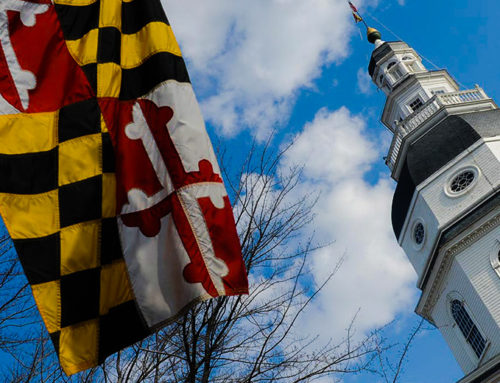View by Topic
Recent Articles
-
Congress Blocks California’s Gasoline Car BanSaturday, May 31st, 2025
-
EPA Will Keep Current Limits for “Forever Chemicals” in Drinking WaterSaturday, May 24th, 2025
-
Court Indefinitely Pauses SEC Climate Rule LitigationSaturday, May 17th, 2025
-
Maryland is About to Regulate Mold But is the Cart Before the HorseSaturday, May 10th, 2025
View by Month/Year
“Green Building Law Update” Headlines
Recent Articles & News from
Stuart Kaplow’s blog
at GreenBuildingLawUpdate.com
- EPA Will Keep Current Limits for “Forever Chemicals” in Drinking Water May 25, 2025
- Court Indefinitely Pauses SEC Climate Rule Litigation May 18, 2025
- Maryland is About to Regulate Mold: But is the Cart Before the Horse? May 11, 2025
- BEPS Redux: The Most Far Reaching Environmental Legislation of the 2025 Maryland General Assembly May 4, 2025
Subscribe to the Green Building Law Update!
Stuart Kaplow brings his expertise and extensive experience to the table with his unique digital publication, "Green Building Law Update". Subscribers receive regular updates to keep them informed about important issues surrounding Environmental Law, Green Building & Real Estate Law, as well as the emerging demand for Environmental Social Governance (ESG).
Get fresh content through the lense of Stuart Kaplow's cutting-edge expertise, innovative commentary and insider perspective. Don't miss another issue! Subscribe below.
Oregon’s Property Rights Law Portends Change for Maryland
The Oregon Supreme Court has just upheld a sweeping voter initiated measure that allows a property owner to seek compensation from the government if land use regulations reduce the value of their land.
Given that Oregon’s land use laws are often cited as the philosophical underpinning of Smart Growth, this measure protecting private property rights is sending ripples across the nation, including in Maryland. Decades of land use laws in Oregon imposing an environmental agenda that steadily reduced housing densities and valued ‘trees over people’ sparked a property rights revolt that produced Measure 37.
Specifically, Measure 37 provides:
“If a public entity enacts or enforces a new land use regulation or enforces a land use regulation enacted prior to the effective date of this amendment that restricts the use of private real property or any interest therein and has the effect of reducing the fair market value of the property, or any interest therein, then the owner of the property shall be paid just compensation.” Oregon Statutes, Sec. 197.352
Land use regulation is defined as “any statute regulating the use of land or any interest therein,” including “zoning ordinances, land division ordinances” and “rules regulating farming and forest practices.”
“Just compensation shall be equal to the reduction in the fair market value of the affected property interest resulting from enactment or enforcement of the land use regulation as of the date the owner makes written demand for compensation under this act.”
As an alternative to the requirement of compensation, however, Measure 37 allows state and local governments to “modify, remove or not … apply the land use regulation or land use regulations to allow the owner to use the property for a use permitted at the time the owner acquired the property.”
Measure 37 limits compensation and relief from land use regulations to property owners who acquired their property prior to the enactment of the particular land use regulation that provides the basis for their claims.
The intentionally broad measure only does not apply to commonly and historically recognized public nuisances, public health and safety regulations, regulations required to comply with federal law, and regulations restricting or prohibiting the use of a property for the purpose of “selling pornography or performing nude dancing.”
The measure specifies that compensation is due if the regulation remains in force 180 days after the owner makes written demand for compensation. After that time, the owner may file an action in the circuit court in the county in which the property is located. Significantly, the measure also specifies that the property owner is entitled to reasonable attorney fees, expenses, costs and other disbursements reasonably incurred to collect compensation.
By way of background, the people of Oregon enacted Measure 37 through the initiative process in the 2004 General Election, with over 61% of the vote, and the measure became effective on December 2, 2004. More than 2,000 claims for compensation were filed before the law was challenged on January 14, 2005. The challengers sought a declaration that the measure was unconstitutional based on several provisions of both the Oregon Constitution and the United States Constitution.
The Oregon trial court declared, on October 24, 2005, Measure 37 was unconstitutional and invalid, for reasons including that it “impermissibly suspended the laws in violation of the Oregon constitution.”
On February 21, 2006, the Oregon Supreme Court inMacpherson v. Oregon Dept. of Administrative Services,unanimously reversed the trial court and upheld the validity of the ballot measure designed to curb regulatory takings: “Whether Measure 37 as a policy choice is wise or foolish, farsighted or blind, is beyond this court’s purview. Our only function in any case involving a constitutional challenge to an initiative measure is to ensure that the measure does not contravene any pertinent, applicable constitutional provisions. Here, we conclude that no such provisions have been contravened.”
It is of note that Oregon voters passed substantially the same measure 4 years ago, but that version was rejected by Oregon’s notoriously pro-environmental Supreme Court on a technicality.
James Huffman, the dean of Lewis & Clark Law School in Portland who argued the case for the supporters of the measure, says the decision is certainly intertwined with “Kelo and the broader property rights mini-revolution that seems to be under way in this way. The bottom line seems to be that people like the results of land-use regulation, but they do not think it fair for some individuals, particularly if they are regular folk, to bear the costs.”
Given that the growth area boundaries in Oregon are often cited as the philosophical underpinning of Smart Growth – in this post Kelo era of heightened scrutiny of government regulatory takings – one can only expect that this measure protecting private property rights portends a shift in land use policy in Maryland and elsewhere.









